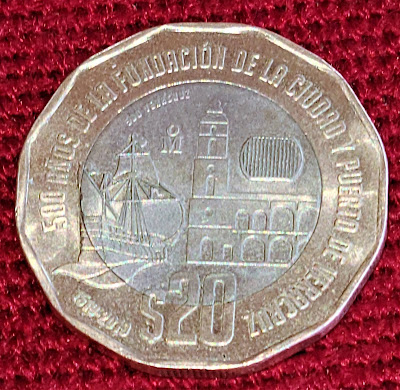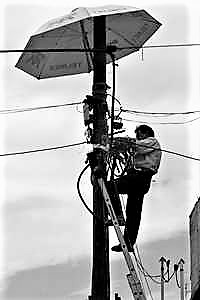Some people have called me a foodie.
They are simply being kind. I think the phrase they are looking for is "food fethishist."
Early on in Mere Christianity, C. S. Lewis writes:Now suppose you came to a country where you could fill a theater by simply bringing a covered plate on to the stage and then slowly lifting the cover so as to let everyone see, just before the lights went out, that it contained a mutton chop or a bit of bacon, would you not think that in that country something had gone wrong with the appetite for food? And would not anyone who had grown up in a different world think there was something equally queer about the state of the sex instinct among us?
The food/sex analogy has never worked very well for me. But Lewis's description of the food fetishist sitting in that theater strikes home. It is me.
My intermittent fasting routine has put one of my food rules to the test. I try to never eat any dish that I have previously eaten. There are just too many new combinations to try. Favorite dishes are as gone with the wind as Tara.
That means that I have to be creative with my six-hour daily eating window. It turns out that it has not been too difficult. If I take a few short-cuts.
Let me tell you about this week's food. When I returned from my Cantinflas-inspired journey last week, I returned to an almost-empty larder. Because I had not yet been to the store on Monday, I searched through the cans that are my stand-bys in a food pinch. You know the drill. These are the cans for when the Russians launch a nuclear attack. Or if the area is leveled in an earthquake and no one but zombies survive. Or if I am simply too lazy to go to the store and buy some proper food.
My first find was two cans of Spanish sardines. The good kind from Spain. (Whatever happened to the quality of Canadian sardines? If they are on the shelf here, I pass them up in favor of their Spanish cousins.)
Better yet, there were two cans of anchovies tucked in a corner. Anchovies are a cook's best friend. When sautéed, they add a nutty umami flavor to the rest of the dish.
Out came the food processor and some vegetables that would be sautéed and processed with the sardines and anchovies. My ultimate goal was to create a foundation pâté. By warming it with a selection of seeds, herbs, and vegetables, I could experience a week of different international sandwiches. An Indian-inspired burrito. A Moroccan taco. A Colombian stuffed pita.
It worked perfectly. But, today I wanted a break from the international Subway cavalcade.
I found some left-over casarecce pasta in the refrigerator. It either was garbage-bound or it would be the bread substitute for today's lunch. I chose the latter.
Sardines and casarecce are a Sicilian dream match. I spooned a large portion into hot olive oil along with tomatoes, capers, olives, lemon peel, garlic, and onion until it emulsified. The casarecce went into the pan along with some lemon juice and fresh basil.
Like most food-processed fish sauces, this one will not win any beauty contest. But it won my taste contest. I am rather suspicious of pretty food; it too often does not live up to its façade. What this dish missed in beauty, it made up for in taste.
When I typed "anchovy" a couple minutes ago, I could hear a sizeable minority of you say: "Ugh!" That is too bad because it is an incredibly versatile ingredient.
It reminded me of a food-production study I read in this week's edition of The Economist.
The Food Puritans are limbering up their Scold Finger for anyone who is inclined to indulge in a steak now and then. Even though I do not care for large hunks of meat on my plate, I do eat ground beef. That makes me a meat target as much as the eponymous Morton of steakhouse fame.
Two recent reports have put beef on the international grill. In 2019, the United Nations' Intergovernmental Panel on Climate Change estimated that the global food system was responsible for 21-37% of greenhouse gas emissions. This March researchers from the European Commission and the United Nations' Food and Agriculture Office released a study with a central estimate near the top of this range. It attributed 34% of greenhouse gas produced in 2015 to food.
And beef was top of the list. This graph shows the carbon dioxide impact of producing beef.

This chart takes a different approach. Another study, by Xiaoming Xu of the University of Illinois at Urbana-Champaign and eight co-authors, allocates this impact among 171 crops and 16 animal products. It finds that animal-based foods account for 57% of agricultural greenhouse gases versus 29% for food from plants. Beef and cow’s milk alone made up 34%. Combined with the earlier study’s results, this implies that cattle produce 12% of greenhouse gases.
It turns out that steak at Morton's has the carbon-dioxide impact of a coal plant. That is a slight exaggeration. But, unit for unit, it is true. At least, according to the study.
So, is beef production doomed? Probably not. Carbon-dioxide emissions is only one of several hundred considerations consumers use in choosing what they eat.
But there is a movement to move cattle indoors to lower the impact of their "emissions." Depends on Bossy are already in the experimental stage.
Of course, there are options. Vegetarians would Nancy Reagan the issue -- just say no.
Or there are other meats. Interestingly, horse meat is one of the lowest-impact meats listed on that first chart. Another study indicated that smaller mammals (including dog and cat) may become beef substitutes in certain parts of the world. (Not in my house.) And this is usually the point where scientists bring up the cultivation of insects as a meat substitute. (I would not mind that.)
So, if I am to exercise my food fetish with the ingredients I currently most enjoy, I better get creative. Either that or my next shoofly pie may be made out of flies and old loafers.































